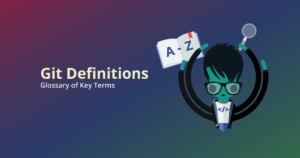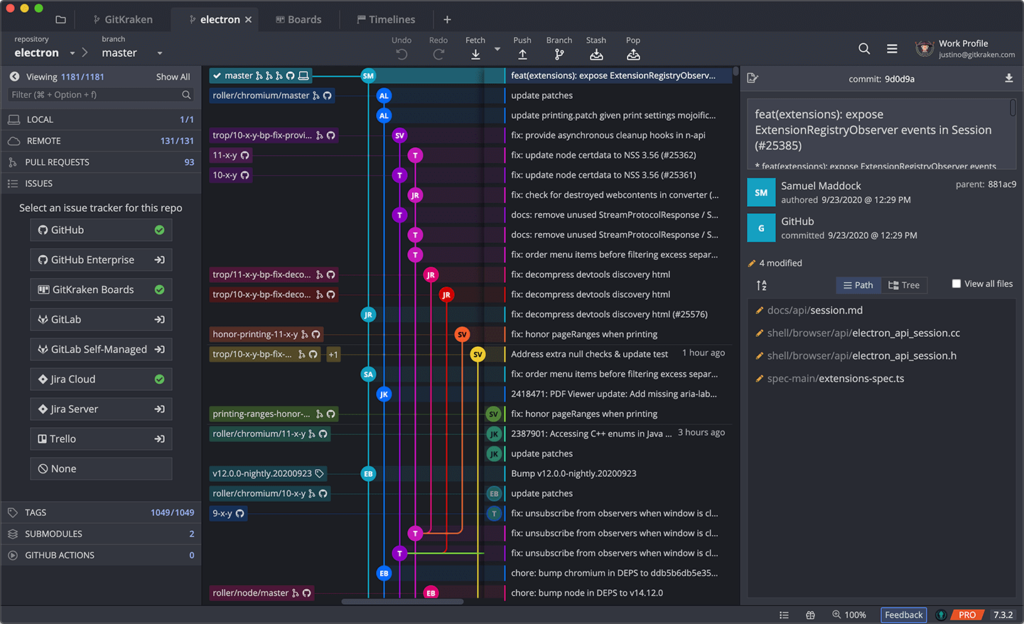Git LFS stands for Large File Storage and is a tool many developers use to save space when working with binary files.
In short, Git LFS is a Git extension that allows users to save space by storing binary files in a different location.
GitKraken makes it easy to initialize LFS on existing repositories and specify the file types you want to track.
The Benefits of Git LFS
When working with repositories that contain audio, video, or image files (aka binary files), any changes made to those files are not tracked through Git in the same way that non-binary files are tracked.
While Git does a great job of tracking change sets in text files, changes made to binary files are tracked as an additional copy of the file.
Imagine you are working with a binary image that takes up 100MB on your repo and you make a change to that file. Git will track that change on a file that also takes up 100MB of space and will continue to do that for each change made.
If you want to do some quick math… Four file changes made to a binary 100MB file would result in a total of 500MB used (100MB original file + 100MB change file + 100MB change file + 100MB change file + 100MB change file = 500MB).
Because these changes also get pushed to your remote, your remote will also grow in size, decreasing the speed in which you can clone, push, pull, or perform other operations with your repo.

Save Time with Git LFS
When using Git LFS, your commits will point to a lightweight reference object instead of pointing back to the binary file (you’re actually pushing the original binary file to an LFS repo).
Now, when you clone the LFS repo or check out a branch in an LFS repo, you will only pull the version of the binary file that you need from the Git LFS server, saving space and time.

GitKraken demystifies advanced Git concepts, like LFS, so your team can feel more confident using Git, even with pesky binary files.
Git LFS Install
Before using Git LFS in GitKraken, you must first install Git LFS on your machine. You will also need to set up your Git LFS server.
If you’re just getting started with Git LFS, GitHub has a built-in free option.
Git LFS in GitKraken
Once you have Git LFS installed, navigate to Preferences in GitKraken to access the LFS option.

You may then initialize Git LFS for an existing repo and specify the file types you need the application to track.

After you complete the initialization process, an LFS icon will appear in the toolbar, allowing you to interact with the files on your Git LFS server.

Viewing Git LFS Files
All files tracked by Git LFS will be marked with the LFS icon in the right panel of GitKraken’s central graph.

When you click to view the Git diff of such a file, you will see the SHA reference instead of your large file.

Finally, you may check the option to initialize the Git LFS application when you Init any repo from GitKraken.

We hope this helps explain the benefits of using a Git Large File Server and how easy it is to utilize with the GitKraken Git GUI.





